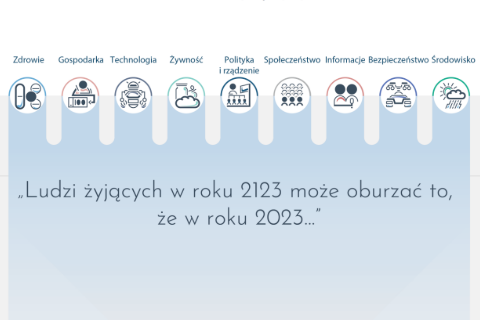Barbarians
How will we disgust our descendants?


Task
The task was to explore and identify contemporary behaviours and phenomena that future generations might view with disgust or moral disapproval. The goal was to challenge current assumptions and reflect on which aspects of today’s society might be deemed barbaric or controversial by our distant descendants. This inquiry aimed to inspire discussions and actions towards a more mature and ethical future.

Solution
To address this task, 4CF The Futures Literacy Company collaborated with the Polish Society for Futures Studies to conduct a comprehensive study. The methodology comprised two key phases:
- Phase 1: 60 futurists from around the world were surveyed to propose potential “modern barbarisms” that future generations might find offensive. Their responses were analysed and categorised into 93 distinct issues.
- Phase 2: A broader audience was then invited to rate these issues based on their perceived novelty and potential for future moral outrage. The focus was on uncovering insights that challenge entrenched assumptions about the future, rather than simply identifying the most predictable or popular issues.
The resulting report highlights the most groundbreaking and provocative ideas. For example, concerns such as the lack of legal rights for nature, the necessity of work, and the absence of recognition for non-human intelligence were among the issues considered most revealing.

Effect
The Report and accompanying infographic effectively illuminate various aspects of contemporary life that may be regarded as problematic or morally unacceptable by future generations. Key findings included:
- The ethical treatment of nature and the necessity for sustainable practices.
- The prevailing work culture, characterised by relentless effort to ensure ongoing maintenance.
- The lack of acknowledgement and rights for non-human intelligence and advanced technologies.
The report not only offered a new perspective on contemporary societal norms but also aimed to stimulate critical reflection and encourage actions aligned with future ethical standards. By highlighting these “barbarisms,” the report seeks to prompt immediate changes in policies and behaviours, fostering a more conscientious approach to the future. Overall, the study underscores the significance of foresight in shaping a more ethical and sustainable world, urging current and future leaders to address these emerging issues proactively.
